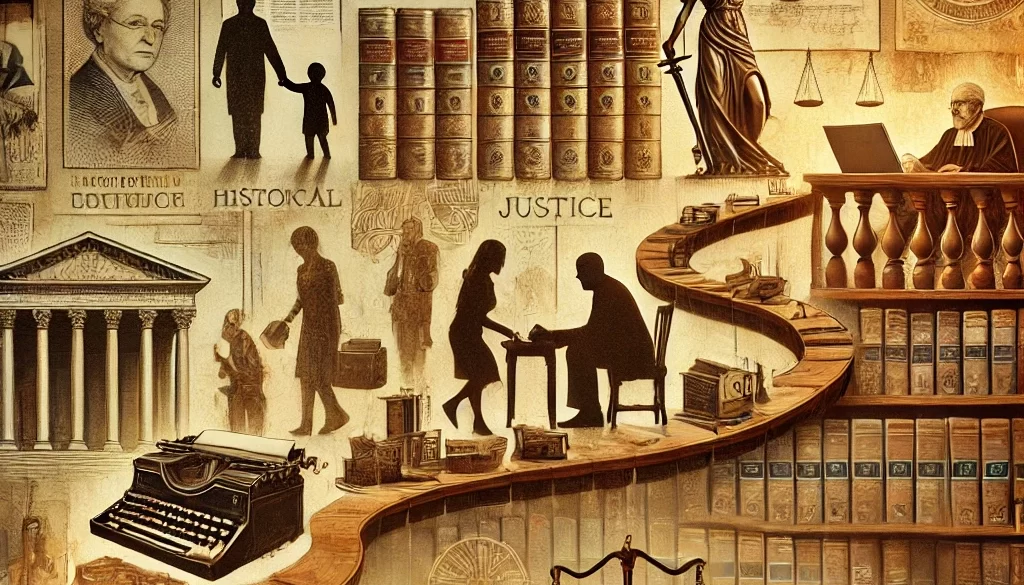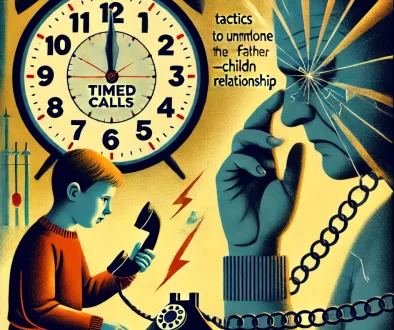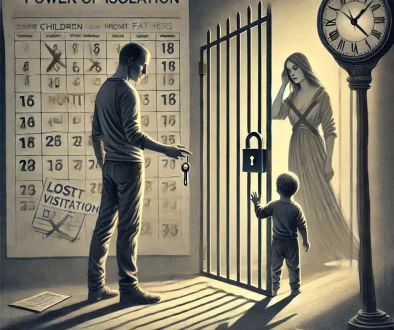The Historical Landscape of Parental Alienation: A Journey Through the Courts
Parental alienation, the deliberate manipulation of a child’s affections to estrange them from one parent, is a phenomenon as old as recorded history. From the earliest legal disputes to modern-day courtrooms, instances of parents alienating children from their co-parents have left an indelible mark on family law. Exploring historical cases sheds light on the evolution of parental alienation in legal discourse and underscores its enduring presence in familial disputes.
Early Cases: Setting Precedents
At the turn of the nineteenth century, cases such as De Manneville v. Crompton highlighted early instances of parental alienation. Leonard Thomas De Manneville’s actions in forcibly removing his child from his estranged wife laid the groundwork for legal battles over custody and parental rights. Despite Margaret Crompton’s attempts to seek legal recourse, the courts’ reliance on archaic laws like coverture often favored paternal custody, perpetuating the alienation of children from their mothers.
Notable Figures: Poets, Philosophers, and Custody Battles
The early 1800s saw renowned figures like Percy Bysshe Shelley embroiled in bitter custody disputes that showcased the insidious nature of parental alienation. Shelley’s struggles to regain custody of his children from his estranged in-laws underscored the challenges faced by parents seeking to maintain relationships with their offspring amid familial strife and manipulation.
Legal Precedents: Chancery Courts and Coverture
Throughout the nineteenth century, cases like Westmeath v. Westmeath exemplified the influence of chancery courts and archaic legal doctrines like coverture on custody determinations. Despite agreements between parents, courts often deferred to paternal authority, enabling alienating parents to sever familial ties and perpetuate estrangement.
Modern Insights: From Courts to Academia
In recent decades, scholars and legal experts have increasingly recognized parental alienation as a pervasive issue in family law. Landmark cases like Schutz v. Schutz shed light on the psychological and emotional toll of alienation on children and non-custodial parents, prompting courts to adopt more nuanced approaches to custody disputes.
Contemporary Challenges: Navigating Complex Dynamics
Despite advancements in legal understanding, parental alienation continues to present challenges in contemporary courtrooms. Cases involving allegations of alienation require careful consideration of the nuances of familial relationships, psychological dynamics, and the best interests of the child.
Conclusion: The Enduring Legacy of Parental Alienation
From antiquity to the present day, parental alienation has cast a long shadow over family law, shaping legal precedents, and leaving lasting impacts on parents and children alike. As courts grapple with the complexities of custody disputes, the historical landscape of parental alienation serves as a sobering reminder of the enduring struggle to preserve familial bonds in the face of manipulation and estrangement.
I’m Randy Morano—a father, author, and staunch advocate for parental alienation awareness. My journey through the depths of parental alienation has transformed me into a passionate advocate, dedicated to shedding light on this overlooked form of emotional abuse.
As a survivor, I understand the profound impact of parental alienation firsthand. Through my writing and advocacy efforts, I aim to raise awareness, empower others, and provide support to families in need. Join me in the fight for change and hope.



